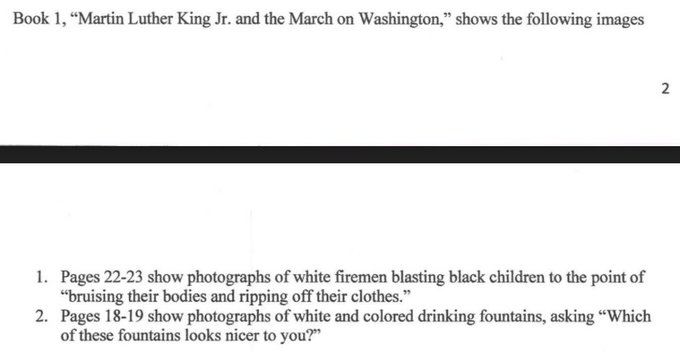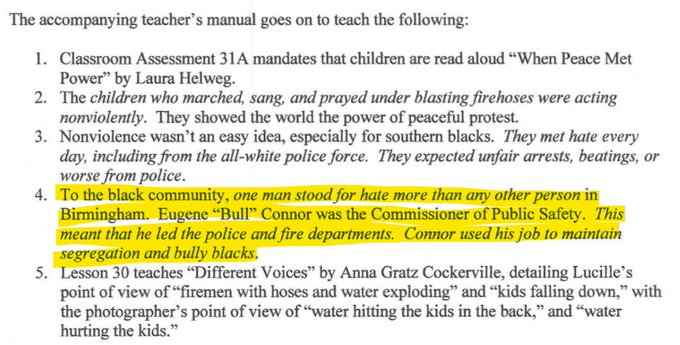Radical Eyes for Equity: Freedom and the Politics of Canceling Teachers and Curriculum
By mid-December of 2021, Matthew Hawn, a former teacher in Tennessee, will once again have his appeal heard after being fired for violating the state’s restrictions on curriculum:
The Tennessee General Assembly has banned the teaching of critical race theory, passing a law at the very end of the legislative session to withhold funding from public schools that teach about white privilege.
Republicans in the House made the legislation a last-minute priority, introducing provisions that ban schools from instructing students that one race bears responsibility for the past actions against another, that the United States is fundamentally racist or that a person is inherently privileged or oppressive due to their race.
TENNESSEE BANS PUBLIC SCHOOLS FROM TEACHING CRITICAL RACE THEORY AMID NATIONAL DEBATE, NATALIE ALLISON
As Allison reported in May, several states across the U.S. have filed or passed copy-cat legislation aimed at banning the teaching of Critical Race Theory.
By October and November, the consequences of Tennessee’s law have moved from silencing and canceling teachers to attempts to cancel curriculum [1]:
The Tennessee Department of Education recently declined to investigate a complaint filed under a new state law prohibiting the teaching of certain topics regarding race and bias.
The complaint, the first directed to the state under the new law passed this spring, was filed by Robin Steenman, chair of the Moms for Liberty Williamson County chapter, a conservative parent group sweeping the nation.
The 11-page complaint alleged that the literacy curriculum, Wit and Wisdom, used by Williamson County Schools and at least 30 other districts, has a “heavily biased agenda” that makes children “hate their country, each other and/or themselves.”
TENNESSEE DEPARTMENT OF EDUCATION REJECTS COMPLAINT FILED UNDER ANTI-CRITICAL RACE THEORY LAW, MEGHAN MANGRUM
Although the complaint was rejected, Mangrum noted, “The group detailed concerns with four specific books on subjects like the Rev. Martin Luther King Jr.’s March on Washington, the integration of California schools by advocate Sylvia Mendez and her family, and the autobiography of Ruby Bridges, adapted for younger learners.”
A teacher fired for teaching Ta-Nehisi Coates, parents calling for bans on MLK and teaching about Ruby Bridges—these events are not unique to Tennessee, but they reflect a pattern of efforts to control not only teachers, but what students are allowed to learn and read.
Notable in these examples is that many of the consequences of legislation are canceling Black writers and key aspects of Black history; additionally, legislation and calls for book banning are targeting LGBTQ+ writers and topics.
Teaching and curriculum in the U.S. are being systematically and politically whitewashed.
One aspect not being addressed often is that political dynamic. Parents, political activists, and politicians are impacting who teaches and what is being taught in the context of a historical and current demand that teachers themselves remain apolitical, both in their classrooms and their lives beyond school.
As I have discussed often, teaching is necessarily political, and teaching as well as writing are necessarily types of activism.
For teachers, then, we must recognize that calls for teachers to be objective, neutral, and apolitical are themselves political acts. Currently, laws being passed and parents/activists confronting school boards are exercising their political power at the expense of teachers and schools—both of which are required to remain somehow politically neutral.
From historian/activist Howard Zinn to critical scholars such as Joe Kincheloe and to poet Adrienne Rich, we have ample evidence that taking a neutral stance is a political act that passively endorses the status quo and that silencing words is an act of canceling thought, eradicating ideas.
Zinn’s commitment to transparency as a teacher and activist is hauntingly relevant to the current political attack on teachers and curriculum:
This mixing of activism and teaching, this insistence that education cannot be neutral on the critical issues of our time, this movement back and forth from the classroom to the struggles outside by teachers who hope their students will do the same, has always frightened the guardians of traditional education. They prefer that education simply prepare the new generation to take its proper place in the old order, not to question that order [emphasis added]….
From the start, my teaching was infused with my own history. I would try to be fair to other points of view, but I wanted more than “objectivity”; I wanted students to leave my classes not just better informed, but more prepared to relinquish the safety of silence, more prepared to speak up, to act against injustice wherever they saw it. This, of course, was a recipe for trouble.
And Kincheloe confronted not only who is actually indoctrinating students but the imperative that teachers recognize teaching as inherently political:
Thus, proponents of critical pedagogy understand that every dimension of schooling and every form of educational practice are politically contested spaces. Shaped by history and challenged by a wide range of interest groups, educational practice is a fuzzy concept as it takes place in numerous settings, is shaped by a plethora of often-invisible forces, and can operate even in the name of democracy and justice to be totalitarian and oppressive [emphasis added].
The great irony is that critical educators (often smeared as “Marxists”) are committed, as Kincheloe asserts, to a foundational concern: “Critical pedagogy wants to know who’s indoctrinating whom.”
The Orwellian named “Moms for LIberty,” then, by calling for canceling curriculum are in fact being “totalitarian and oppressive,” calling for not education, but indoctrination. To ban words and ideas is to ban the possibility of thinking, of learning:
The study of silence has long engrossed me. The matrix of a poet’s work consists not only of what is there [emphasis in original] to be absorbed and worked on, but also of what is missing, desaparecido [emphasis in original], rendered unspeakable, thus unthinkable.
ARTS OF THE POSSIBLE, ADRIENNE RICH
A final powerful point is that many of these political acts to silence teachers and cancel curriculum are occurring in right-to-work states controlled by Republicans. Teachers not only are expected to be neutral, objective, and apolitical, but also work with a distinct awareness they have almost no job security.
Hawn fired in Tennessee simply taught a text and now is fighting for his career; the text in most ways just a year ago was considered non-controversial and even celebrated as Coates had attained recognition as one of the country’s leading Black voices.
During this holiday season at the end of 2021, teachers honestly have no decision about whether or not to be political. We are faced with only two political choices: conform to the demand that we take a neutral pose, resulting in endorsing whatever status quo legislators and parents/activist impose on schools; or recognize and embrace the essential political nature of being a teacher by actively opposing efforts to cancel teachers and curriculum.
[1] Twitter thread:
A Tennessee chapter of "Moms for Liberty" filed a complaint with the Tennessee Department of Education alleging that assigning 2nd Graders a book about MLK Jr's March on Washington violated the state's new law banning Critical Race Theory
The Tennessee Department of Education declined to "investigate" but for a technical reason. The complaint dealt with curriculum during the 2020-21 school year and not the current school year.
Tennessee Department of Education rejects complaint filed under anti-critical race theory law
Nov 29, 2021Replying to @JuddLegum
The Tennessee Department of Education declined to "investigate" but for a technical reason. The complaint dealt with curriculum during the 2020-21 school year and not the current school year.
Tennessee Department of Education rejects complaint filed under anti-critical race theory law
So Moms for Liberty could refile the complaint and they might be successful next time. Their issue with the MLK book are two images that are historically accurate. This is what these anti-CRT bills are about.
Nov 29, 2021Replying to @JuddLegum
So Moms for Liberty could refile the complaint and they might be successful next time. Their issue with the MLK book are two images that are historically accurate. This is what these anti-CRT bills are about.
Moms for liberty also objects to the TEACHERS MANUAL suggesting that notorious segregationist Eugene "Bull" Connor was not a nice guy
Nov 29, 2021Replying to @JuddLegum
Moms for liberty also objects to the TEACHERS MANUAL suggesting that notorious segregationist Eugene "Bull" Connor was not a nice guy
Moms for Liberty says learning about MLK Jr's March on Washington is emotionally traumatizing for Tennessee students Learning about past injustices, they say, violates Tennessee law
This blog post has been shared by permission from the author.
Readers wishing to comment on the content are encouraged to do so via the link to the original post.
Find the original post here:
The views expressed by the blogger are not necessarily those of NEPC.






